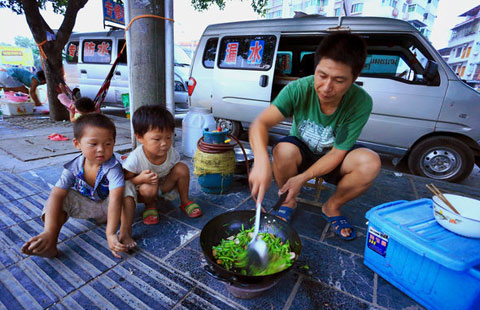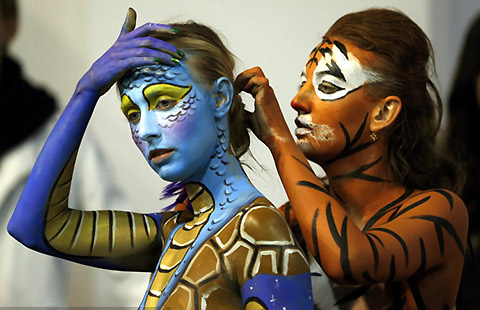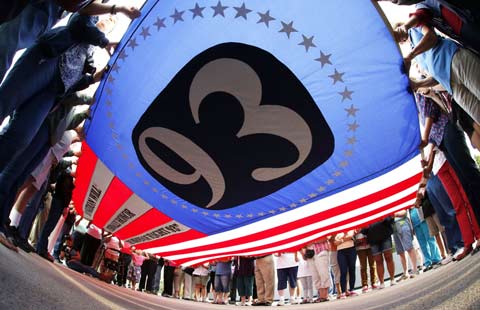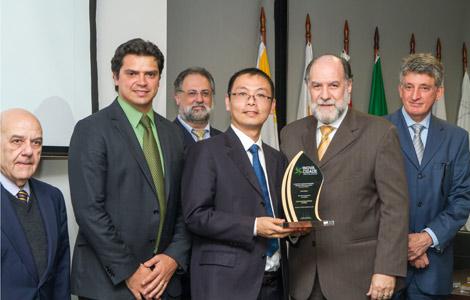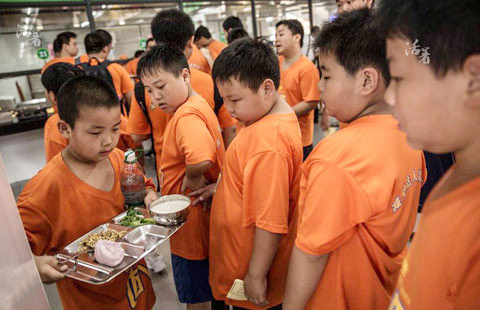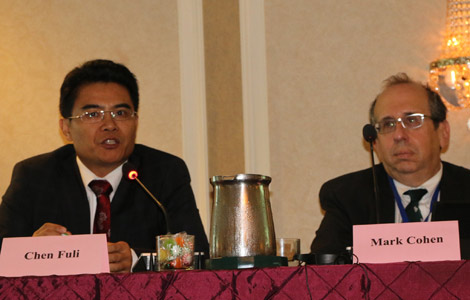Actress stuck in nations' conflict
Updated: 2014-09-16 07:27
By Raymond Zhou(China Daily)
|
||||||||
Star in China and Japan criticized by both peoples for being close to other side
Yoshiko Otaka, who died on Sept 7 at the age of 94, was one of the biggest Chinese stars - a popular singer and film actress - when China was invaded by Japanese forces.
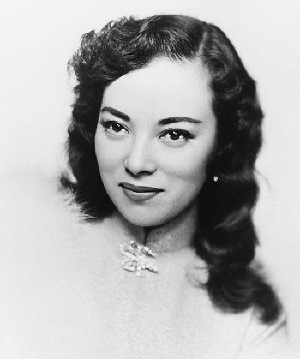 |
|
Singer and actress Li Xianglan, popular in the 1940s and 1950s, died on Sept 7. She was 94. Provided to China Daily |
Otaka was born Yoshiko Yamaguchi to Japanese parents who were settlers in Northeast China. At an early age, she was given the Chinese name Li Xianglan (sometimes spelled Li Hsiang-lan, or Ri Kouran in Japanese) by a Chinese godfather who had become a family friend. She also took singing lessons from a Russian expatriate. When a local radio show called for a Chinese girl who could read music and speak Japanese, she was about the only one who fit the description - except that she was a Japanese girl who could speak authentic Chinese.
From then on, she appeared in public as Li Xianglan - especially when she moved to other parts of China before they were occupied by Japan, and anti-Japanese sentiments were high.
Her film career was launched at Manchuria Film Production as it made propaganda films that promoted Japan's national policy. She rose to stardom and was named "Japan-Manchuria Goodwill Ambassadress". The 1940 film China Nights, or Shanghai Nights, was highly controversial: Li portrayed a Chinese girl who was mistreated by a Japanese man, but nonetheless fell in love with him and reacted with kindness. She was criticized by Chinese audiences for debasing Chinese women.
While touring Japan, she got a taste of racism even from those close to her. She was mocked for being too Chinese and thus looking second-class. In her later memoir, she recalled that she was sad that her compatriots would "insult the country of her birth".
Li Xianglan starred in many of the most popular movies in Japanese-occupied Manchuria and Taiwan and was one of the top stars in Shanghai.
After the war, she was arrested by the Chinese government for treason and collaboration with the Japanese. After her Russian voice teacher produced her birth certificate showing that she had always been a Japanese citizen, she was cleared of all charges and presumably from the death penalty.
In 1946, Li was repatriated to Japan and assumed her original Japanese name. She worked with directors including Akira Kurosawa. Some of her roles resembled her real life caught between two countries in conflict.
She took on the name Shirley Yamaguchi when she briefly appeared in Hollywood (Japanese War Bride and House of Bamboo) and on Broadway (Shangri-La) in the 1950s. She earned the nickname "the Judy Garland of Japan". She also made Chinese-language films around that time in Hong Kong and was still billed as Li Xianglan.
In 1958, she retired from film and occasionally took on television hosting jobs. She married Japanese diplomat Hiroshi Otaka and in 1974 won a seat in the upper house of the Japanese parliament where she served for 18 years.
Li was aware that Chinese had mixed feelings about her. She had apologized profusely for her early involvement in Japanese propaganda films, attributing it to "youth and inexperience". And she had often expressed her desire that her "fatherland" Japan and her "motherland" China would be on friendly terms with each other. In 2005, she wrote a long article advising the Japanese prime minister not to visit the Yasukuni Shrine because, as she said, it would "deeply hurt the Chinese heart".
Li's dramatic life story was re-created in several movies and television series. In China, her fame lives on in songs she made famous, especially The Evening Primrose. Hong Kong pop star Jacky Cheung named a song after her.
raymondzhou@chinadaily.com.cn
Most Viewed
Editor's Picks

|

|

|

|

|

|
Today's Top News
Sinopec privatization biggest in Xi's tenure
Beijing to tighten foreign hiring requirements
More CFAs buoy hopes for finance
Hillary Clinton takes a big step toward 2016
US teachers visit China on fellowship
Silk Road, climate change on agenda
Boosting innovation in Latin America
China, LatAm see rosy trade prospect
US Weekly

|

|
